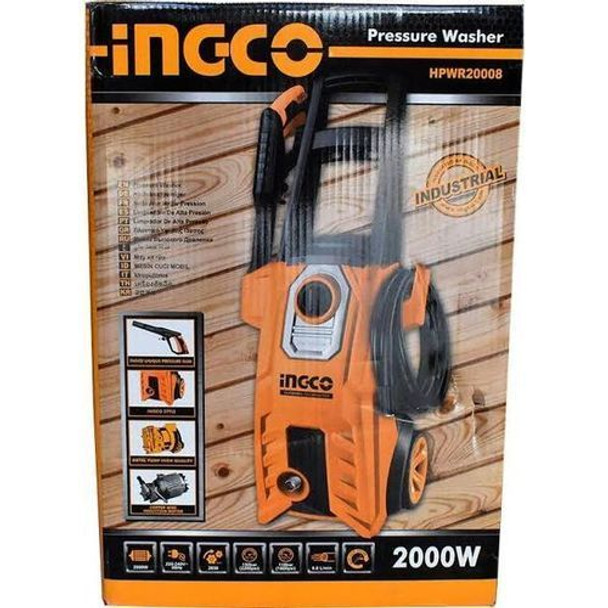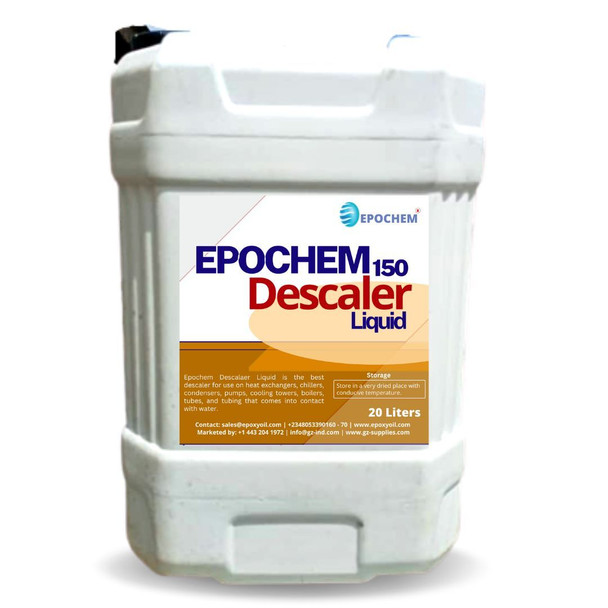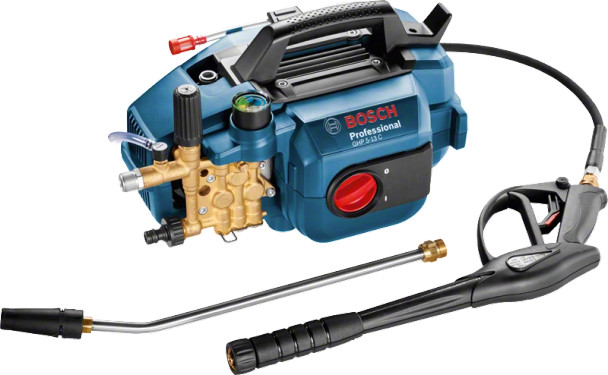The Ultimate Guide to Industrial Cleaning: Everything You Need to Know
Industrial cleaning is essential for maintaining the safety, efficiency, and longevity of industrial facilities. Regular cleaning prevents the accumulation of hazardous substances, reduces the risk of accidents, and ensures compliance with health and safety regulations. Proper cleaning also enhances the operational efficiency of equipment, leading to fewer breakdowns and higher productivity.
Specialized industrial cleaning companies provide tailored cleaning solutions to keep factories and plants running efficiently, minimizing downtime caused by dirt build-up and maintenance issues. Manufacturing facilities can be particularly dirty and hazardous, posing significant risks to employees. The primary goal of an industrial cleaning company is to create a safe and clean workplace, mitigating potential safety hazards and ensuring a healthy environment for workers. By partnering with an industrial cleaning company, you can effectively maintain cleanliness and safety in your industrial space, allowing your operations to continue smoothly and efficiently.
This guide will cover all aspects of industrial cleaning, from the various types and techniques to the essential equipment and safety precautions. We will also explore the benefits of professional cleaning services and provide case studies to illustrate successful cleaning projects.
 Epochem Sodium Hypochlorite: Eliminate germs and keep your workspaces contaminant free.
Epochem Sodium Hypochlorite: Eliminate germs and keep your workspaces contaminant free.
Types of Industrial Cleaning
1. Routine Cleaning
Routine cleaning involves regular, scheduled maintenance to keep industrial facilities clean and safe. This type of cleaning includes tasks such as sweeping, dusting, and wiping down surfaces to prevent the buildup of dirt and grime. Routine cleaning is essential for maintaining a baseline level of cleanliness and preventing minor issues from becoming major problems.
2. Deep Cleaning
Deep cleaning goes beyond routine maintenance to address more stubborn dirt and contaminants. This type of cleaning involves more intensive methods, such as scrubbing floors, degreasing machinery, and cleaning hard-to-reach areas. Deep cleaning is typically performed periodically, such as quarterly or annually, depending on the facility's needs.
3. Specialized Cleaning
- Hazardous Material Cleaning
Hazardous material cleaning involves the safe removal and disposal of dangerous substances, such as chemicals, biological agents, and radioactive materials. This type of cleaning requires specialized knowledge and equipment to ensure the safety of workers and the environment.
- Cleanroom Cleaning
Cleanroom cleaning is critical in industries like pharmaceuticals and electronics, where even the smallest contaminants can compromise product quality. This cleaning involves strict protocols to maintain a controlled environment with minimal particulate contamination.
- High-Pressure Cleaning
High-pressure cleaning uses powerful water jets to remove stubborn dirt, grease, and grime from surfaces. This method is effective for cleaning large industrial equipment, tanks, and surfaces that are difficult to clean with traditional methods.
 Ingco High Pressure Washer. Tackles dirt, mold, and grime with ease.
Ingco High Pressure Washer. Tackles dirt, mold, and grime with ease.
Common Industrial Cleaning Techniques
1. Pressure Washing
Pressure washing involves using high-pressure water jets to remove dirt, grime, and other contaminants from surfaces. This technique is ideal for cleaning large equipment, vehicles, and building exteriors. It is effective in removing tough stains and buildup that regular cleaning methods cannot handle.
2. Chemical Cleaning
Chemical cleaning uses various cleaning agents, such as detergents, solvents, and disinfectants, to break down and remove contaminants. This method is particularly useful for removing grease, oil, and other stubborn residues. It is essential to choose the right chemicals for the specific contaminants and surfaces being cleaned to avoid damage.
3. Steam Cleaning
Steam cleaning uses high-temperature steam to clean and sanitize surfaces. This technique is effective in killing bacteria and germs, making it ideal for environments that require high levels of hygiene, such as food processing plants and healthcare facilities. Steam cleaning is also environmentally friendly, as it often requires only water and no harsh chemicals.
Essential Industrial Cleaning Equipment
1. Cleaning Machines
Floor Scrubbers
Floor scrubbers are machines designed to clean large floor areas quickly and efficiently. They use rotating brushes or pads to scrub the floor, while a vacuum system collects the dirty water, leaving the floor clean and dry.
Industrial Vacuums
Industrial vacuums are powerful machines used to remove dust, debris, and liquids from surfaces. They are essential for maintaining cleanliness in industrial environments, particularly in areas with heavy dust or particulate matter.
Pressure Washers
Pressure washers are machines that use high-pressure water jets to clean surfaces. They are highly effective for removing stubborn dirt, grease, and grime from equipment, vehicles, and structures.
2. Tools and Accessories
Brushes and Scrapers
Brushes and scrapers are essential tools for manual cleaning tasks. They are used to scrub and scrape away dirt, grime, and other contaminants from surfaces, particularly in hard-to-reach areas.
Cleaning Cloths and Mops
Cleaning cloths and mops are basic yet vital tools for wiping down surfaces and mopping floors. They are used in both routine and deep cleaning to maintain a clean environment.
Personal Protective Equipment (PPE)
Personal protective equipment (PPE) is crucial for ensuring the safety of workers during industrial cleaning. This includes items such as gloves, goggles, face masks, and protective clothing to protect against exposure to hazardous substances and cleaning agents.
 Epochem Multipurpose Liquid Detergent - The Eco-Friendly Cleaning Choice.
Epochem Multipurpose Liquid Detergent - The Eco-Friendly Cleaning Choice.
Safety Precautions in Industrial Cleaning
Safety is paramount in industrial cleaning due to the potential hazards associated with the cleaning process. These hazards can include exposure to chemicals, slipping on wet surfaces, and encountering hazardous materials. Proper safety precautions help prevent accidents and ensure the well-being of cleaning staff and other personnel.
1. Proper Training
All personnel involved in industrial cleaning should receive comprehensive training on the use of cleaning equipment, handling of chemicals, and safety procedures. This training should include instructions on the proper use of personal protective equipment (PPE) and emergency response protocols.
2. Use of PPE
Personal protective equipment (PPE) is essential for protecting workers from exposure to harmful substances and physical hazards. Depending on the cleaning task, PPE may include gloves, goggles, face masks, respirators, and protective clothing. Ensuring that all workers are equipped with the necessary PPE is a critical aspect of maintaining safety.
3. Safe Handling of Chemicals
Proper storage, handling, and disposal of cleaning chemicals are crucial for preventing accidents and environmental contamination. Workers should be trained to read and understand Safety Data Sheets (SDS) for all chemicals used and follow the recommended guidelines for their use.
4. Signage and Barriers
Using appropriate signage and barriers to mark hazardous areas and wet surfaces helps prevent accidental slips and falls. Clear communication about ongoing cleaning activities can also help protect other workers and personnel in the vicinity.
Benefits of Professional Industrial Cleaning Services
1. Expertise and Experience
Professional industrial cleaning services bring a wealth of expertise and experience to the table. Their trained staff understands the intricacies of various cleaning techniques and the appropriate use of equipment and chemicals. This expertise ensures that cleaning tasks are performed efficiently and effectively, reducing the risk of damage to equipment and facilities.
2. Time and Cost Efficiency
Hiring professional cleaners can save businesses significant time and money. With their specialized equipment and efficient processes, professional cleaners can complete tasks faster and more thoroughly than in-house staff. This efficiency allows businesses to focus on their core operations without the burden of managing cleaning tasks.
3. Compliance with Regulations
Industrial facilities must adhere to strict health and safety regulations. Professional cleaning services are well-versed in these regulations and ensure that all cleaning activities comply with the necessary standards. This compliance helps businesses avoid potential fines and legal issues associated with non-compliance.
 Epochem 150 Descaler. Eliminate Limescale Buildup & Keep your operations running smoothly.
Epochem 150 Descaler. Eliminate Limescale Buildup & Keep your operations running smoothly.
Case Studies
1. Manufacturing Plant
A large manufacturing plant struggled with maintaining cleanliness due to the accumulation of oil and grease on machinery and floors. By hiring a professional industrial cleaning service, the plant was able to implement a routine and deep cleaning schedule. The result was a safer working environment, reduced equipment downtime, and improved overall productivity.
2. Food Processing Facility
A food processing facility required stringent hygiene standards to comply with industry regulations. The facility enlisted the help of a professional cleaning service that specialized in cleanroom cleaning. The service implemented a comprehensive cleaning plan, including regular steam cleaning and the use of food-safe disinfectants. This ensured the facility maintained the highest levels of cleanliness and hygiene, preventing contamination and ensuring product quality.
3. Chemical Plant
A chemical plant faced challenges with hazardous material spills and contamination. A professional cleaning service with expertise in hazardous material cleaning was brought in to handle these issues. The service conducted thorough cleaning and decontamination processes, ensuring the safety of workers and compliance with environmental regulations. This proactive approach minimized the risk of accidents and environmental harm.
A chemical plant faced significant challenges with hazardous material spills and contamination, which posed severe risks to worker safety and environmental integrity. To address these issues, the plant enlisted a professional cleaning service with expertise in handling hazardous materials. The service implemented a comprehensive cleaning and decontamination process, which included the use of specialized equipment and protocols for safely managing and disposing of hazardous substances. This intervention not only ensured the safety of the workers but also brought the plant into compliance with stringent environmental regulations, significantly reducing the risk of accidents and environmental harm.
 Bosch GHP 5-13 C High Pressure Washer: One machine, endless uses.
Bosch GHP 5-13 C High Pressure Washer: One machine, endless uses.
Frequently Asked Questions (FAQs)
1. What is industrial cleaning?
Industrial cleaning involves specialized cleaning techniques and equipment to maintain cleanliness and safety in industrial facilities. It includes routine, deep, and specialized cleaning tasks tailored to the needs of different industries.
2. Why is industrial cleaning important?
Industrial cleaning is crucial for maintaining a safe and efficient working environment. It helps prevent accidents, reduces equipment downtime, ensures compliance with health and safety regulations, and enhances overall productivity.
3. What types of industrial cleaning services are available?
Industrial cleaning services can include routine cleaning, deep cleaning, hazardous material cleaning, cleanroom cleaning, and high-pressure cleaning, among others. The specific services offered depend on the needs of the facility.
4. How often should industrial facilities be cleaned?
The frequency of industrial cleaning depends on the type of facility and the level of contamination. Routine cleaning may be performed daily or weekly, while deep cleaning might be scheduled quarterly or annually. Specialized cleaning is done as needed based on the facility's requirements.
5. What safety precautions should be taken during industrial cleaning?
Safety precautions during industrial cleaning include proper training for staff, use of personal protective equipment (PPE), safe handling of chemicals, and the use of appropriate signage and barriers to mark hazardous areas and wet surfaces.
Conclusion
Industrial cleaning is an integral part of maintaining safe, efficient, and compliant industrial facilities. By understanding the different types of cleaning, common techniques, essential equipment, and the importance of safety, businesses can ensure their facilities remain in optimal condition. By leveraging specialized techniques and equipment, industrial cleaning ensures that facilities remain compliant with health and safety standards, minimize equipment downtime, and maintain optimal working conditions. Professional cleaning services bring expertise, efficiency, and compliance knowledge that can transform the cleanliness and safety of any industrial setting. Investing in robust industrial cleaning practices ultimately fosters a safer, more productive, and compliant workplace.
For all your industrial cleaning needs, trust the experts at GZ Industrial Supplies. Visit gz-supplies.com to learn more about our comprehensive cleaning solutions and how we can help you maintain a safe and efficient working environment. Contact us today for a consultation and experience the difference professional industrial cleaning can make.
Recent Posts
-
The Ultimate Guide to Understanding the Difference Between Ethylene Glycol and Propylene Glycol
Introduction Glycols are versatile compounds widely used across various industries, from automotive …Apr 16, 2025 -
What are Agricultural Machinery
Introduction Agricultural Machinery is also used to improve the wide range of production prac …Apr 14, 2025 -
The Best Electrical Wire in Nigeria 2025 (Updated)
Introduction Electrical wires are the basic unit of every electrical system. Electrical wires …Apr 14, 2025









